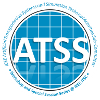Aim and Scope
The Special Issue on "Human Factors in Intelligent Vehicles" (HFIV) of IEEE Transactions on Intelligent Transportations Systems (IEEE T-ITS) aims to present issues related to the analysis of human factors in the design and evaluation of intelligent vehicles (IV) technologies, in a wide spectrum of applications and in different dimensions. We are pleased to welcome and to encourage prospective authors to contribute with manuscripts reporting on original research in the different fields concerning HFIV.
The HFIV Special Issue is planned and expected to build upon a proper environment to disseminate knowledge and motivate active discussion and interaction among the technical and the scientific communities, practitioners and students, leveraging state-of-the-art concepts, methodologies and cutting-edge results both to academia and to the industry.
IV technologies have experienced a great improvement in the last couple of decades, turning vehicles into more interactive counterparts in transportation and mobility systems. However, the impact of such technologies on traffic awareness for the driver and driver’s behavior towards improving driving performance and reducing road accidents still demands proper tools and approaches. While the feasibility of incorporating new technology-driven functionality to vehicles has played a central role in the automotive design, not always safety issues related to interaction with contemporary in-vehicle systems have been taken into consideration appropriately. Additionally, other aspects are equally important and need to be analyzed, such as the impact technologies that support specific driving functions play on the overall driving task, as well as their impact on the transportation system overall performance. Besides current industrial achievements that feature today’s vehicles with a number of important and advanced driving assistance systems (the so-called ADAS), the perspective of autonomous driving vehicles populating urban environment poses even more challenging issues. Very soon vehicles will also be continuously connected to the Internet, opening up a vast road ahead to the implementation of a new generation of on-board infotainment systems. Thus, the information and functionalities that rely on new ways of communication has to be presented in a non-intrusive way that complies with specific design and safety requirements. A system that guarantees efficiency of use, comfort and user satisfaction can contribute to a more conscious driving behavior that would directly result from the adoption of IV technologies.
Topics of Interest
Some topics of interest include (but are not limited to) the following:
- Intelligent user interfaces
- Human-machine interaction
- Human-in-the-loop simulation
- Cognitive aspects and cultural aspects of driving
- Personality and emotions in driver interactions
- Human behavior and capability, affecting system design and operation
- Modeling and simulation in driver behavior analysis
- Ergonomics of traveler information systems
- Tools and approaches to analyze human factors
- Anthropometric layout of vehicular technical systems
- Methodologies to test, validate, calibrate and optimize overall system performance
- Virtual, augmented, and mixed realities
- Cross-Cultural Design
- Augmented Cognition
- User Experience and Usability
- Effects of in-vehicle systems on driver performance
- Tools and methodologies for usability assessment
- I/O modalities in system ergonomic design
- Anticipating reactions through leaning and adaptation
- Methodologies for driver training
- Interactions with disabled-people and people with reduced mobility
- Accessibility of IV technologies
- Parallel Control and Management of Intelligent Vehicles
Important Dates
The schedule for the HFIV Special Issue is as follows:
Manuscript Submission and Publication
Prospective authors are invited to submit contributions reporting on their current research on HFIV related areas and topics. Each paper will be analyzed by at least three reviewers of IEEE T-ITS according to their technical quality, relevance, results and potential contribution. Accepted papers will be included in the IEEE T-ITS Special Issue on "Human Factors in Intelligent Vehicles".






